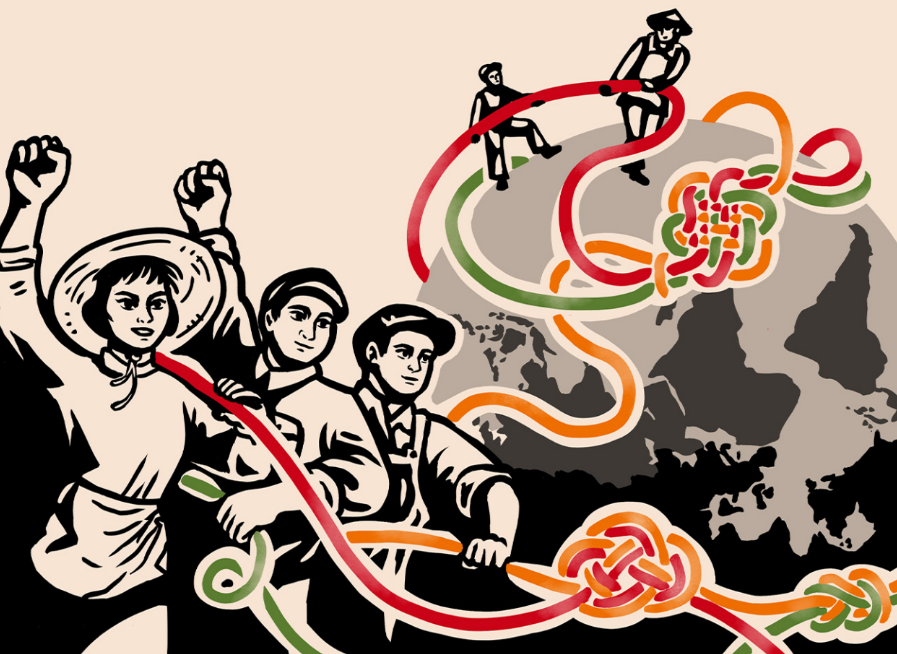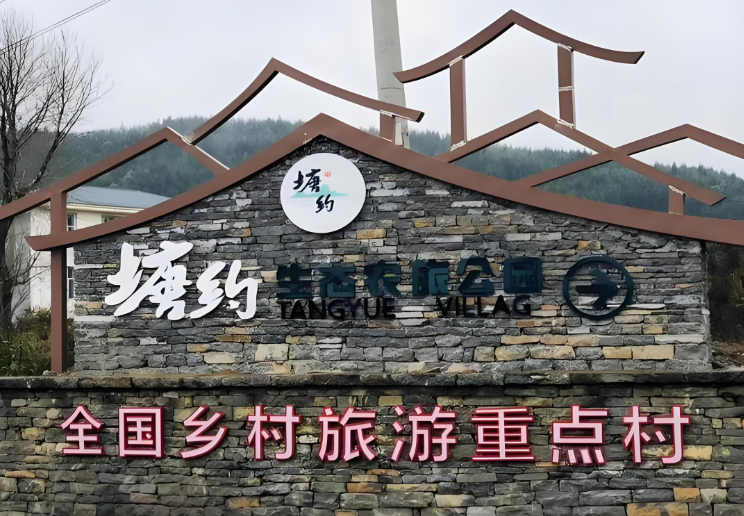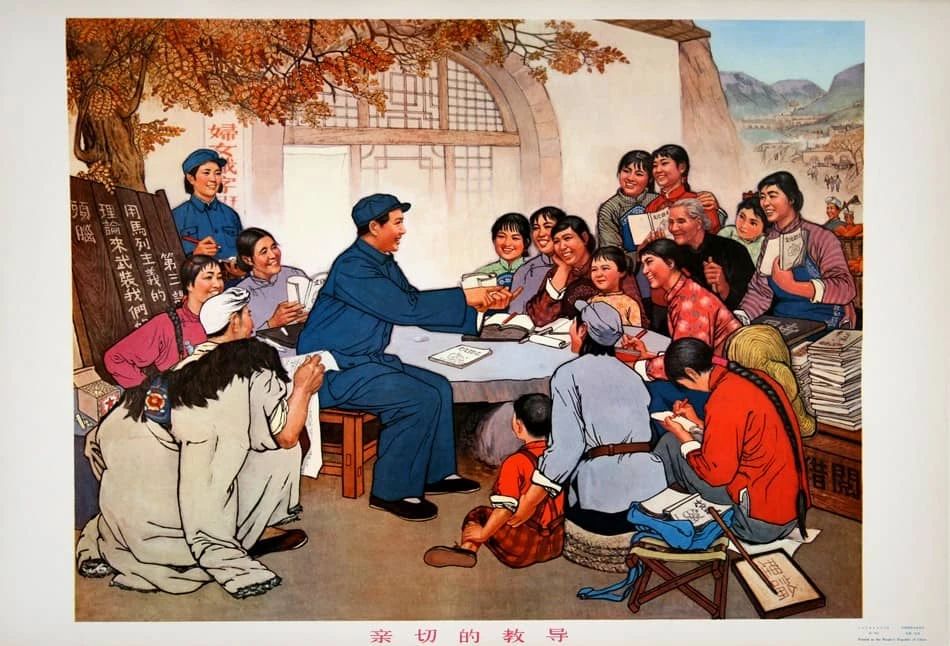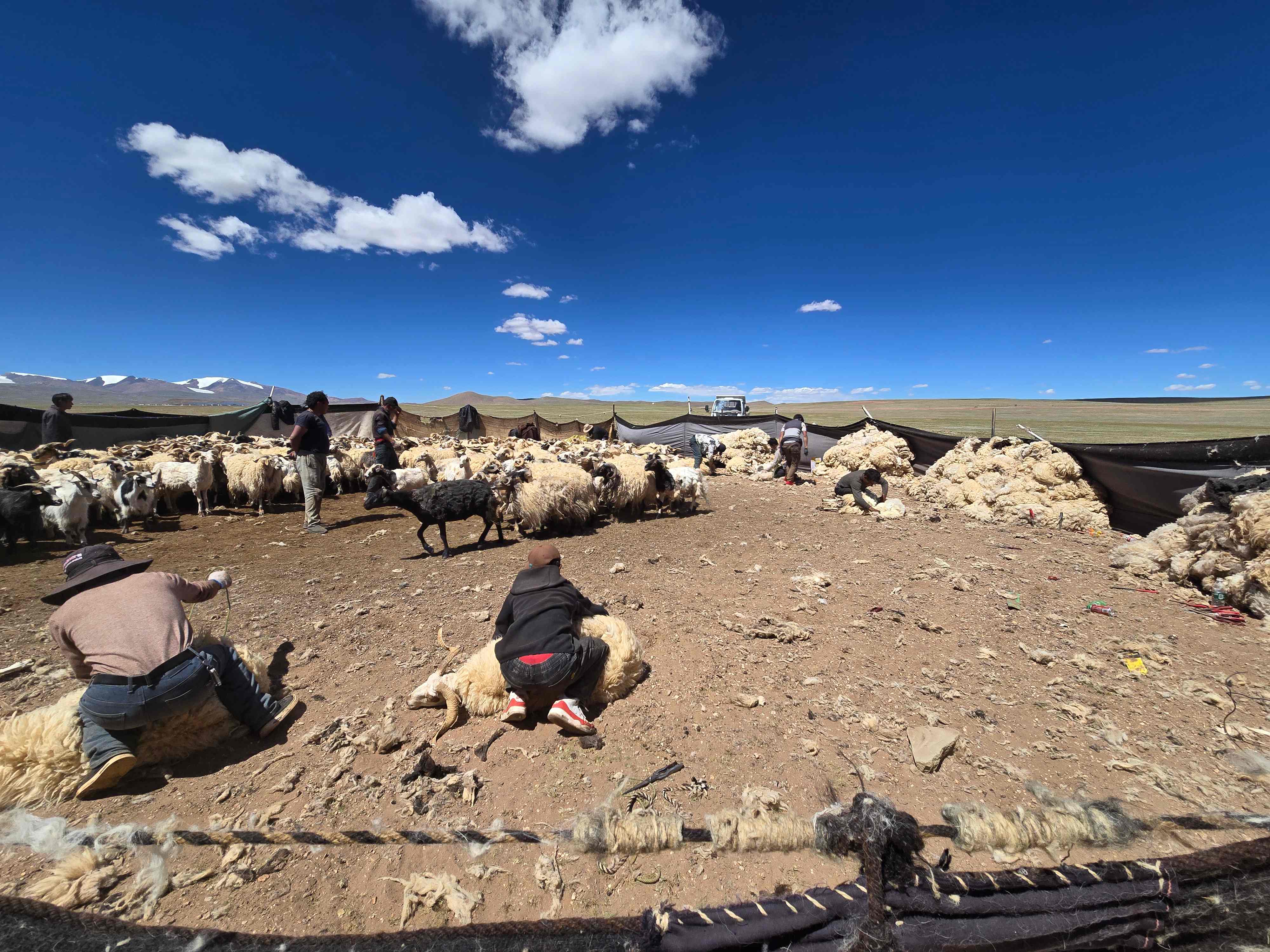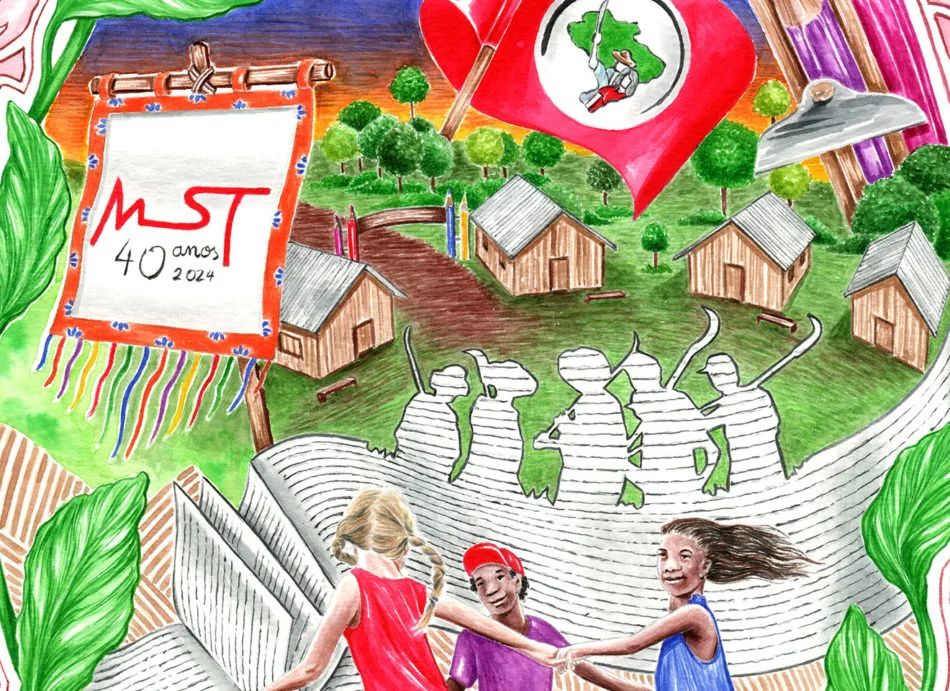消费者不买转基因食物,基改巨头又开始搞基因驱动!
来源: 人民食物主权 发布时间:2018-12-04 阅读:2900 次
食物主权按:
今年9月,使用新一代的基因驱动(gene drive)技术的一批基改蚊子被投放在非洲国家布基纳法索。一般来说,两性性繁殖的后代有50%的机会遗传父母中的一个基因。基因驱动的技术则几乎可以保证在几代之内使所有的后代都拥有那个基因。
美国富翁比尔·盖茨的“比尔和梅琳达基金会”参与了这一所谓“友善蚊子”计划的研发合作。研发公司Oxitec表示,这些蚊子在布基纳法索投放以后,可以消除90%以上传递疟疾的病媒蚊,保护非洲人民的身体健康。该技术透过让雄性蚊携带“自我限制(self-limiting)”基因,使其繁殖的后代无法存活。
今年10月,代表亿万农民和食物从业者的组织宣布坚决抵制“基因驱动”,倡导拒绝基因驱动物种,指出基因驱动对食物和农业系统有巨大的潜在危害。本文的两篇报道陈述了关于基因驱动物种的争议。
翻译丨代宁
校对丨侯娣、侯马
1、 200余国际食物运动领袖与组织拒绝“基因驱动”,最新报告揭露饱受争议的基因强制技术如何对农场下手
罗马,2018年10月16日(世界粮食日)——今天,国际食物运动领袖与组织代表亿万农民和食物从业者(food workers)宣布明确抵制“基因驱动”(gene drives)。“基因驱动”是一类饱受争议的新型基因强制技术(genetic forcing technology)。这份抵制声明附带一份名为“强迫农场”(Forcing the Farm)的最新报告,报告揭露了基因驱动对食物和农业系统的潜在危害。
基因驱动是一类基因改造工具,其目的是将人工造成的基因变化强制混入动物、昆虫和植物的全体族群。不同于此前的基因改造生物,基因驱动生物(GDOs)是一种有意传播基因污染的农业策略。举个例子,基因驱动可以传播“自我灭绝”(auto-extinction)基因清除农业害虫。目前研发这些“自我灭绝”生物的农业研究机构包括加州樱桃协会(California Cherry Board),美国柑橘研究协会(US Citrus Research Board),和加州私企Agragene Inc. 下个月,“联合国生物多样性公约”(United Nations Biodiversity Convention)将集会商讨控制这项技术的措施,包括可能暂时禁止基因驱动。
“完善的食物系统不允许有这些有意扩散的(基因驱动)生物,”非洲食物主权联盟(African Food Sovereignty Alliance)主席Mariann Bassey说。非洲食物主权联盟下属的34家机构在列签署反基因驱动倡议书的有200余组织和个人。Bassey还说道,“基因驱动可能导致物种灭绝,削弱公平可持续的食物和农业系统。”
倡议暂缓食物和农业中的基因驱动的组织和个人包括:所有往届和现任联合国特聘“食物权利”汇报人(UN Special Rapporteurs on the Right to Food)、国际有机农业运动联盟(International Federation of Organic Agriculture Movements)、食物和农场工人国际联盟(the International Union representing Food and Farmworkers, IUF),以及覆盖81个国家和超过2亿农民的最大农民运动网络“农民之路”(La Via Campesina)。签署人还包括注明的食物议题评论员和种子保护活动家Vandana Shiva、 世界食物奖(World Food Prize)得主Hans Herren博士、国际地球之友(Friends of the Earth International)的国际主席Karin Nansen、活动家兼食物企业家Nell Newman, 以及环保人士和遗传学家David Suzuki.
“基因驱动在食物系统的运用将威胁农民权利和受国际公约保障的农民权利,”2008年到2014年担任联合国食物权利特聘汇报人的Olivier De Schutter博士解释道。“基因驱动将阻碍实现享有健康、生态生产和在文化上适宜的(culturally appropriate)的食物和营养的人权。”“农民之路坚决反对基因驱动技术。它对小农经济、公众、国家、甚至世界食物主权都构成威胁。这种技术威胁生命、生物多样性和社会系统”,作为加拿大农民之路一员的年轻农民Genevieve LaLumiere说。“这种无法控制的技术很危险,可能污染我们的种子、动物和土壤,破坏生态系统稳定,摧毁我们的根本资源,”巴西农民组织(Brasil Peasant Organisation,也是农民之路的一员)成员Marciano Da Silva说, “基因驱动技术的本质是一项为我们农民种子的本土特性强加专利的工具。”
ETC团队和海因里希·波尔基金会(Henrich Böll Foundation)研究发表的“强迫农场”报告,详尽地介绍了基因驱动科技准备通过哪些方式应用在农业(见表格)。报告同时揭露,基因驱动开发者有意隐瞒基因驱动在农业方面的应用,而试图引导公众把关注点集中在高调的公众健康和环保方面。美国国防委员会的非公开会议报告显示,孟山都-拜耳和 Cibus Bioscience 等农业企业可能涉足基因驱动开发。
“在食物和农业领域应用基因驱动技术使生物技术产业战略成为可能”,ETC Group联合执行董事Jim Thoams解释道,“之前基改公司改造粮食作物。现在消费者不买基改食物了,这些公司转而改造农业体系的其他成分——杂草、害虫和授粉昆虫。”
“扩散性的基因驱动一经释放,将对有机、非基改和生态农业造成致命威胁”,IFOAM–Organics International的国际主席Peggy Miars说。该机构是生态农业的伞状组织,它在世界117个国家有近800关联组织。“任何关心有机农业保护和有机食物市场的政府应该迅速采取行动,抑制威胁。”
“强制农场”报告和200个食物运动组织和领袖倡议书可以在此网址查看: http://www.etcgroup.org/content/forcing-farm
基因驱动与农业:强迫农场中的六个案例
● 基因驱动技术正用于改造苍蝇、昆虫、蠕虫和其他害虫,使其后代绝育,作为杀虫剂的生物替代品。
● 研究者提议使用基因驱动作为一种育种工具,以提高牲畜的出肉量。
● “自我毁灭”基因驱动正用于改造老鼠和甲虫等影响粮食储存的生物。
● 有科学家已经申请了专利,向蜜蜂引入基因驱动技术,以实现光控授粉。
● 有研究已经开始为常见杂草引入基因驱动,让他们对农达等除草剂更具耐受性。
● 对两种基因驱动的关键专利分析显示,他们分别囊括了500-600项农业方面的应用,包括有品牌的186种除草剂和46种杀虫剂、310种农业害虫、线虫、螨虫和蛾子等。
2、一封抵制基因灭绝技术,捍卫食物系统的倡议书:全球食物及农业运动对释放基因驱动物种说NO
基因驱动(gene drives)是一类新的工具,它强制将基因改造的特征注入昆虫、植物、动物和其他生物的全体族群。这种侵略性技术明显带有加剧基因污染的动机。基因驱动可能导致物种灭绝,并破坏公平可持续的食物农业体系。
基因驱动还将威胁自然系统。如果通过实验释放到环境中,它们可能在野生和养殖的物种中不受控制地扩散被改造的基因。这可能改变生态系统和食物网,破坏生物多样性,同时灭绝授粉昆虫等有益生物。基因驱动可能干扰土壤、水体、食物和纤维经济,威胁原住民及小农的生态农业活动和文化。
基因驱动正被开发为农业所用。一旦被运用,它会使农场基因更加单一化和压榨农民权利。这些权利是“食物和农业植物基因资源国际协议”(International Treaty on Plant Genetic Resources for Food and Agriculture)和“联合国关于农民和在农村地区工作的人的权利声明”(UN Declaration on the Rights of Peasants and other People Working in Rural Areas)都所珍视的。基因驱动的应用可能进一步巩固基改工业化农业系统,加剧农业毒素使用,助长企业巨头对全球食物体系的掌控,侵害农民、食品从业者(food workers)和消费者的食物主权。基因驱动将阻碍实现享有健康、生态生产和在文化上适宜的(culturally appropriate)的食物和营养的人权。
我们联名签署这份倡议书,呼吁全球抵制基因驱动。这项抵制活动对遵从国际法的“风险预防原则”(the precautionary principle)、保护地球生命和保障我们的食物供给都是必要的。
我们呼吁各国政府建立参与式的技术评估过程,尊重和实现原住民以及其他受基因驱动在内的生物技术影响的人口完全免费、优先和知情的同意(full free, prior and informed consent),这是“联合国关于原住民权利的声明”(UN Declaration on the Rights of Indigenous Peoples)和其他国际公约都视为神圣的权利。这是为了保卫我们对生物多样性和传统知识的权利。
我们反对当下“试验”危险的基因改造生物的实验,因为它们是为了在未来进一步释放基因驱动生物。
我们将倾力保护食物体系、文化、和生态系统,保护从事农业和食物生产,保护依赖农业和食物生产的人的权利、生计和食物主权。
英文原文
1. Over 200 Global Food Movement Leaders and Organizations Reject "Gene Drives"
New Report exposes how a controversial genetic forcing technology is targeting the farm
Rome, 16 October 2018 (World Food Day) – Global food movement leaders and organizations representing hundreds of millions of farmers and food workers today set out their clear opposition to “gene drives” – a controversial new genetic forcing technology. Their call for a stop to this technology accompanies a new report, Forcing the Farm, that lifts the lid on how gene drives may harm food and farming systems.
Gene drives are a genetic engineering tool that aim to force artificial genetic changes through entire populations of animals, insects and plants. Unlike previous genetically modified organisms (GMOs) these gene drive organisms (GDOs) are deliberately designed to spread genetic pollution as an agricultural strategy – for example, spreading ‘auto-extinction’ genes to wipe out agricultural pests. Agri-research bodies now developing these extinction-organisms include the California Cherry Board, the US Citrus Research Board and the private California company Agragene Inc. Next month, the United Nations Biodiversity Convention will meet to discuss measures to control this technology, including a possible moratorium.
“There is no place in a good food system for these deliberately spreading organisms,” says Mariann Bassey, chair of the African Food Sovereignty Alliance, whose 34 member organisations are among the 200+ groups and individuals who have signed the call against gene drives. "Gene drives may drive species to extinction and undermine sustainable and equitable food and agriculture,” Bassey continued.
Those launching the call for a moratorium on gene drives in food and agriculture include all past and present UN Special Rapporteurs on the Right to Food; the International Federation of Organic Agriculture Movements; IUF (the International Union representing Food and Farmworkers); and La Via Campesina, the largest network of peasant movements representing 200 million peasants in 81 countries. Signatories also include well-known commentators on food matters including seed activist Vandana Shiva, World Food Prize winner Dr Hans Herren, International President of Friends of the Earth International Karin Nansen, Activist and Food entrepreneur Nell Newman, and environmentalist and geneticist David Suzuki.
“Applying gene drives to food systems threatens to harm farmers’ rights and the rights of peasants as enshrined in international treaties,” explains Dr Olivier De Schutter, who served as the UN Rapporteur on the Right to Food from 2008-2014. “Gene drives would undermine the realization of human rights including the right to healthy, ecologically-produced and culturally appropriate food and nutrition.” “La Via Campesina is firmly positioned against the gene drive technology. It is a threat to peasant economies, to people, countries and even the world’s food sovereignty – a technique which threatens life, biodiversity and social systems, ” said Genevieve LaLumiere, a Canadian young farmer of La Via Campesina. “This uncontrolled technology is dangerous and can contaminate our seeds, our animals and our soil; destabilize our ecosystems; and destroy our fundamental resources." Marciano Da Silva from Brasil Peasant Organisation (also of La Via Campesina) continued, “gene drive technology is, fundamentally, a tool for patentability of native traits of our peasant seeds.”
The Forcing the Farm report, researched and produced by ETC Group and the Heinrich Böll Foundation, details several ways in which gene drive technology is being readied for application in agriculture (see box). The report exposes how gene drive developers are deliberately keeping from view agricultural applications while trying to focus public interest on high profile health and conservation projects. Reports from closed meetings with a US defence committee show that agribusiness firms such as Monsanto-Bayer and Cibus Bioscience appear to be engaging with gene drive development.
“Applying gene drives to food and agriculture turns biotech industry strategies on their head,” explains Jim Thomas, Co-Executive Director of ETC Group. “Previously GMO companies engineered the food crops. Now that consumers won’t buy GMO food, companies are coming to engineer the rest of the agricultural system instead – the weeds, the pests and the pollinators.”
“If spreading gene drives were to be released, they could pose an existential threat to organic, non-GMO and agroecological agriculture,” explains Peggy Miars, International Chair of IFOAM – Organics International, the umbrella organization for organic agriculture worldwide with close to 800 affiliates in 117 countries. “Any government who cares about protecting organic agriculture and the organic food market should move quickly to contain this threat.”]
###
Press Contacts:
ETC Group:
Jim Thomas (Canada/USA): jim@etcgroup.org, +1 5145165759 (cell)
Tom Wakeford (Rome/UK): tom@etcgroup.org, +44 7966 170713 (cell)
Heinrich Boell Foundation:
Christine Chemnitz (Berlin): chemnitz@boell.de +49-(0)30-285 34 – 312
Notes for Editors:
The Forcing the Farm report and the call by more than 200 food movement organisations and leaders can be viewed here: http://www.etcgroup.org/content/forcing-farm
Gene Drives and Agriculture: Six examples drawn from Forcing the Farm
● Gene drives are being engineered into flies, insects, worms and other pests to spread sterility as a biological alternative to pesticides.
● Researchers are proposing using gene drives as a breeding tool to increase meat production in livestock.
● “Auto-extinction” gene drives are being engineered into rats and mice as well as beetles that affect storage of grains.
● Patents have been sought to engineer gene drives into honey bees to control pollination patterns using light beams.
● Research is ongoing to engineer gene drives into common weed species to make them more susceptible to herbicides such as Roundup.
● Analysis of two key patents on gene drives show that they each reference around 500-600 agricultural uses including brand names of 186 herbicides, 46 pesticides, 310 agricultural pest insects, nematodes, mites, moths and others
2. A Call to Protect Food Systems from Genetic Extinction Technology:The Global Food and Agriculture Movement Says NO to Release of Gene Drive
Gene drives are new tools that force genetically engineered traits through entire populations of insects, plants, animals and other organisms. This invasive technology represents a deliberate attempt to create a new form of genetic pollution. Gene Drives may drive species to extinction and undermine sustainable and equitable food and agriculture.
Gene drives threaten natural systems. If released experimentally into the environment they may spread engineered genes uncontrollably through wild and domesticated species. This could alter ecological systems and food webs, harm biodiversity and eradicate beneficial organisms such as pollinators. Gene drives could disrupt lands, waters, food and fiber economies and harm Indigenous and peasant agroecological practices and cultures.
Gene drives are being developed for use in agriculture. If applied, they may make farms even more genetically uniform and foreclose farmers’ rights, as enshrined, among others, in the International Treaty on Plant Genetic Resources for Food and Agriculture and in the UN Declaration on the Rights of Peasants and other People Working in Rural Areas. Use of gene drives may further entrench a system of genetically-engineered industrial agriculture, extend agro-toxin use and concentrate corporate control over global food systems, undermining the food sovereignty of farmers, food workers and consumers. Gene drives hinder the realization of human rights including rights to healthy, ecologically-produced and culturally appropriate food and nutrition.
We, the undersigned, call for a global moratorium on any release of engineered gene drives. This moratorium is necessary to affirm the precautionary principle, which is enshrined in international law, and to protect life on Earth as well as our food supply.
We urge governments to establish participatory technology assessment processes and to respect and fulfill the full free, prior and informed consent of Indigenous Peoples and other affected populations for all emerging biotechnologies, including gene drives - as enshrined in the UN Declaration on the Rights of Indigenous Peoples and other international agreements. This is to protect our rights to preserve biodiversity and traditional knowledge.
We oppose current experiments to ‘test’ risky transgenic organisms as a step towards future release of gene drive organisms.
We commit ourselves to the protection of food systems, cultures, ecosystems and the rights, livelihoods and food sovereignty of those who work in and depend on agriculture and food production.




